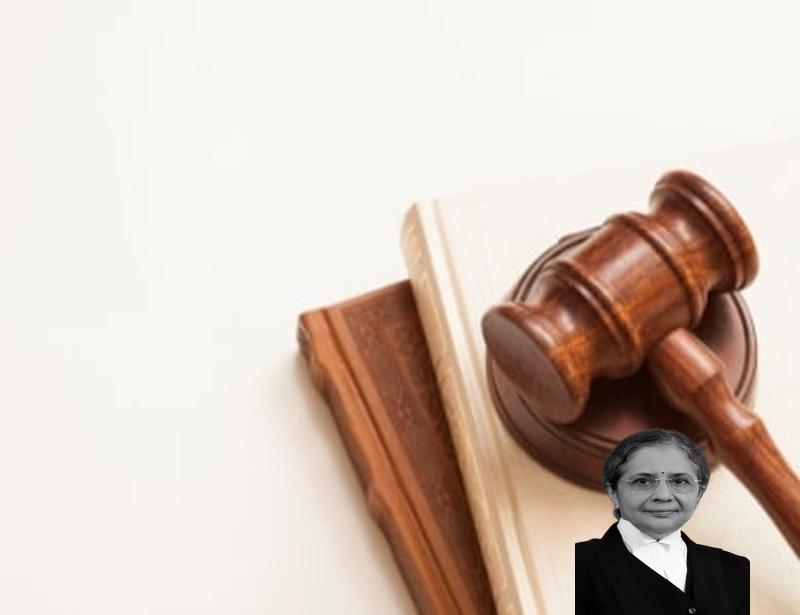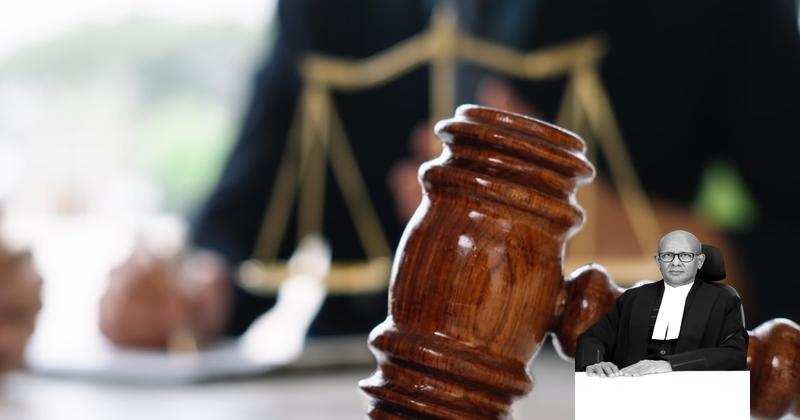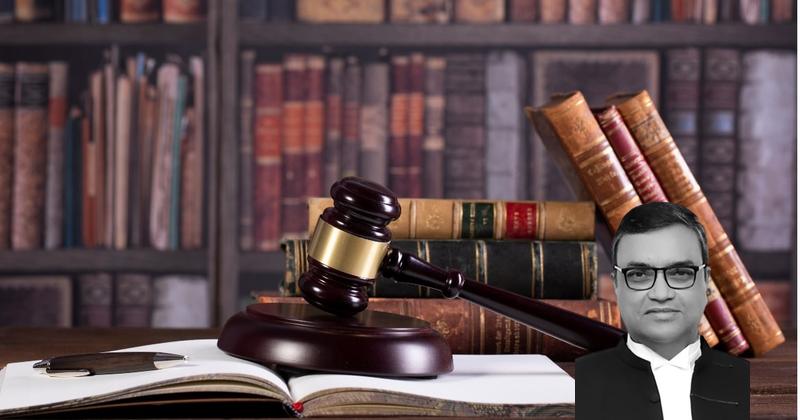The present appeal is directed against the judgment and order dated 22.09.2023 passed by the High Court of Delhi at New Delhi, in Writ Petition (Crl.) No 2408/2023, whereby the High Court has dismissed the said petition seeking declaration that the arrest of the appellant on 27.06.2023 by the respondent Directorate of Enforcement (hereinafter referred to as the ED) was illegal and violative of the fundamental rights 2 guaranteed to the appellant under Articles 14, 20 and 21 of the Constitution of India, and seeking direction to release the appellant forthwith. The matter was also taken up by the appellant before the NCLAT with settlement proposal, however during the pendency of the insolvency proceedings, the respondent ED passed a provisional attachment order on 11.04.2023, provisionally attaching certain personal properties of the appellant and filed an original complaint (OC No 1974/2023) on 04.05.2023, before the Adjudicating Authority, PMLA, seeking confirmation of the provisional attachment order in terms of Section 8 of PMLA.
Also Read: https://newslaw.in/supreme-court/high-court-dismisses-bail-application-in-corruption-case/
The Special Court remanded the appellant to the ED custody till 10.07.2023 and thereafter the appellant was sent to judicial custody for 14 days till 24.07.2023.
The respondent ED has filed an affidavit to counter the allegations made in the Appeal by the appellant, and asserted that the arrest was in accordance with Section 19 of the PMLA. It is respectfully submitted that the very fact that the respondent has now annexed the copy of the grounds of arrest establishes the fact that the petitioner was not served the copy of the grounds of arrest. Mere perusal of grounds of arrest for getting it signed, without serving the same by providing a copy thereof at the time of arrest, does not meet the requirements in law and the arrest of the petitioner is thus illegal.” Power to arrest.- (1) If the Director, Deputy Director, Assistant Director or any other officer authorised in this behalf by the Central Government by general or special order, has on the basis of material in his possession, reason to believe (the reason for such belief to be recorded in writing) that any person has been guilty of an offence punishable under this Act, he may arrest such person and shall, as soon as may be, inform him of the grounds for such arrest.
(3) Every person arrested under sub-section (1) shall, within twenty-four hours, be taken to a [Special Court or] Judicial Magistrate or a Metropolitan Magistrate, as the case may be, having jurisdiction: Provided that the period of twenty-four hours shall exclude the time necessary for the journey from the place of arrest to the [Special Court or] Magistrate’s Court.”
8 SUBMISSIONS BY THE LEARNED COUNSELS: – 8.
State represented by Deputy Director and Others and therefore the said decision in Pankaj Bansal case (supra) is required to be applied retrospectively though the word ‘henceforth’ has been used. Raju vehemently submitted that the decision in case of Pankaj Bansal (supra) was per incuriam, as the two-Judge Bench in the said case had deviated from the position of law settled by the prior three-Judge Bench judgment in Vijay Madanlal Choudhary and Others vs Union of India and Others with respect to the compliance of the provisions of Section 19 of PMLA. ……..In other words, the role of the Authorities appointed under Chapter VIII of the 2002 Act is such that they are tasked with dual role of conducting inquiry and collect evidence to facilitate adjudication proceedings before the Adjudicating Authority in exercise of powers conferred upon them under Chapters III and V of the 2002 Act and also to use the same materials to bolster the allegation against the person concerned by way of a formal complaint to be filed for offence of money-laundering under the 2002 Act before the Special Court, if the fact situation so warrant. In Romesh Chandra Mehta532, the Constitution Bench of this Court enunciated that Section 104 of the Customs Act confers power to arrest upon the Custom Officer if he has reason to believe that any person in India or within the Indian Customs waters has been guilty of an offence punishable under Section 135 of that Act.
Such power of arrest can be exercised only in those cases where the Customs Officer has “reason to believe” that a person has been guilty of an offence punishable under Sections 132, 133, 135, 135-A or 136 of the Act. The law thus, on the one hand, allows a Customs Officer to exercise power to arrest a person who has committed certain offences, and on the other hand, takes due care to ensure individual freedom and liberty by laying down norms and providing safeguards so that the power of arrest is not abused or misused by the authorities. The safeguards provided in the 2002 Act and the preconditions to be fulfilled by the authorised officer before effecting arrest, as contained in Section 19 of the 2002 Act, are equally stringent and of higher standard. On the other hand, we hold that such a provision has reasonable nexus with the purposes and objects sought to be achieved by the 2002 Act of prevention of money-laundering and confiscation of proceeds of crime involved in money- laundering, including to prosecute persons involved in the process or activity connected with the proceeds of crime so as to ensure that the proceeds of crime are not 13 dealt with in any manner which may result in frustrating any proceedings relating to confiscation thereof.” Further while dealing with the issue as to whether it was necessary to furnish a copy of ECIR to the person concerned apprehending the arrest or at least after his arrest, the Bench held in Vijay Madanlal (supra) as under: – “458. The ECIR may contain details of the material in possession of the Authority and recording satisfaction of reason to believe that the person is guilty of money-laundering offence, if revealed before the inquiry/investigation required to proceed against the property being proceeds of crime including to the person involved in the process or activity connected therewith, may have deleterious impact on the final outcome of the inquiry/investigation. In any case, upon filing of the complaint before the statutory period provided in 1973 Code, after arrest, the person would get all relevant materials forming part of the complaint filed by the Authority under Section 44(1)(b) of the 2002 Act before the Special Court.
In several cases, even the names of persons actually involved in the commission of offence are not mentioned in the FIR and described as unknown accused. Senthil Balaji (supra), the two-Judge Bench while dealing with Section 19 of PMLA observed as under: – “39.
Also Read: https://newslaw.in/supreme-court/case-summary-illegal-arrest-and-violation-of-fundamental-rights/
Needless to state, compliance of sub-section (2) is also a 16 solemn function of the arresting authority which brooks no exception.” In Pankaj Bansal case (supra), the two-Judge Bench after analyzing the provisions contained in Section 19(1) of PMLA observed as under:- “39. It hardly needs to be emphasized that as well settled, it is in order to guard against the possibility of inconsistent decisions on the points of law by different Division Benches that the Rule of precedent has been evolved.
The range of judicial review recognised in the superior judiciary of India is perhaps the widest and the most extensive known to the world of law. Union of India [(1987) 1 SCC 124 : (1987) 1 SCR 435 : (1987) 2 ATC 82].)
With this impressive expanse (1989) 2 SCC 754 18 of judicial power, it is only right that the superior courts in India should be conscious of the enormous responsibility which rest on them. It is commonly known that most decisions of the courts are of significance not merely because they constitute an adjudication on the rights of the parties and resolve the dispute between them, but also because in doing so they embody a declaration of law operating as a binding principle in future cases. But having regard to the volume of work demanding the attention of the Court, it has been found necessary in India as a general rule of practice and convenience that the Court should sit in Divisions, each Division being constituted of Judges whose number may be determined by the exigencies of judicial need, by the nature of the case including any statutory mandate relative thereto, and by such other considerations which the Chief Justice, in whom such authority devolves by convention, may find most appropriate.
and Another highlighting the utmost importance of the doctrine of binding precedent in the administration of judicial system and following the decision in Raghubir Singh’s case (supra) observed as under: – “ 22.
Judicial consistency promotes confidence in the system, therefore, there is this need for consistency in the enunciation of legal principles in the decisions of this Court. 4, para 6)
Also Read: https://newslaw.in/supreme-court/dismissal-of-bail-application-in-money-laundering-case/
“But if a Bench of two learned Judges concludes that an earlier judgment of three learned Judges is so very incorrect that in no circumstances can it be followed, the proper course for it to adopt is to refer the matter before it to a Bench of three learned Judges setting out, as has been done here, the reasons why it could not agree with the earlier judgment.
Case Title: RAM KISHOR ARORA Vs. DIRECTORATE OF ENFORCEMENT
Case Number: Crl.A. No.-003865-003865 / 2023



